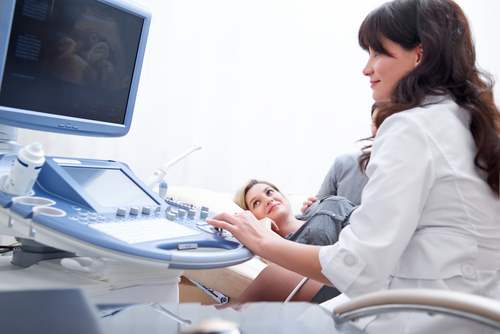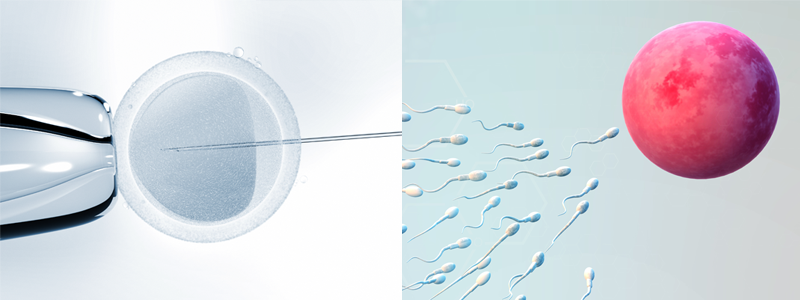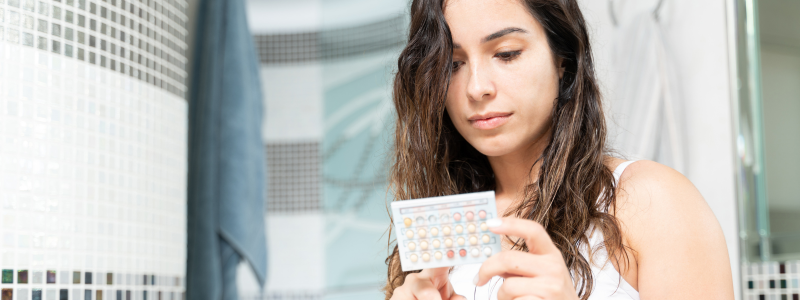If you are struggling to conceive naturally, that does not necessarily mean you need to rush into fertility treatment. In fact, many young women and men are advised to work on improving their fertility through simpler means such as losing weight, or reducing their stress levels first.
Here, we uncover the best ways to improve your chances of conceiving naturally which are science-supported and doctor approved. If you have any questions about these suggestions, or wish to find out more about your fertility, please contact us here.
1. Keep your weight within an optimal BMI
The single most important lifestyle factor to improve your chances of conceiving is keeping your weight within the optimal BMI range of 20-24. Too much or too little body fat can affect the regularity of periods, and so affect your ovulation cycle and ability to conceive. If men are overweight, then this can also negatively affect their sperm too.
As an example, one study in the Netherlands, found that overweight women could double their chances of falling pregnant if they lost some weight.
Want to know your BMI? You can use BMI calculator here.
2. Have a nutritionally balanced diet
The optimum fertility diet for both men and women should be nutritionally balanced. Where possible, choose slow-release carbohydrates (e.g. whole grains, fruit and vegetables) over fast-release carbs, such as white bread and rice. Also ensure you keep your omega-3 levels high with plenty of fish or, if you’re vegetarian, with mango, walnuts, hemp seed and flax-seed in your diet. Be careful with your fats too! Avoid trans fats and refined sugars, and opt for full-fat rather than low-fat dairy products.
3. Have sex regularly, and at the right time
By knowing your menstrual cycle and using an ovulation calculator, you can work out your most fertile days and so improve your likelihood of falling pregnant every month.
There are also lots of tools and apps you can use to further help calculate when your ovaries are releasing eggs. For instance, you can measure the hormone surge of LH from your brain (this triggers ovulation) with a simple urine stick test which can be bought from a pharmacy.
Dr Geeta Nargund, the Medical Director at CREATE Fertility, says: "Often, when I ask patients how long they've been trying to have a baby, they'll say for the past six years….But when you get down to it, they haven't been trying for six years because they haven't been having regular sex” - Madeformums
This is unsurprising, especially when professional couples work in different places and have busy lives, so don't find time to have regular sex at the right time of the month.
4. Think about quitting smoking
Apart from being under or overweight, smoking is one of the most damaging lifestyle factor that impacts fertility. Research shows that smoking can be linked to early menopause in women, and damage sperm in men. If you are hoping to get pregnant, then you should aim to stop smoking as soon as possible.
5. Indulge in relaxation and positive thinking
This may sound easier said than done, but a healthy mind promotes a healthy body. Take part in daily relaxing activities and/or exercise that promote positive thinking, such as yoga or meditation. Or trying walking or cycling to work, rather than taking public transport. By reducing your stress levels, you are highly likely to improve your chance of conceiving too.
6. Check the medication you’re taking
There are many medications that may affect the ability of a woman’s body to ovulate, or impact a man’s sperm count. “Avoiding taking some painkillers around the time of ovulation” says Professor Geeta Nargund in the Huffington Post “It is thought that they can stop your ovaries releasing the egg”
If you are concerned that the medication you are taking is affecting your fertility, please contact your doctor.
7. Take your age into account
Your chances of conceiving will change with age. For instance, a woman’s chance of getting pregnant at 40 years naturally is about 5% per cycle, whereas a woman in her early 30s has approximately a 20% chance per cycle. Many women decide to seek assisted reproductive technologies after they have been trying to conceive for over a year, but may decide to seek advice earlier if they are over the age of 35.
It is also a good idea to ask your mum about her age of menopause. Did this occur before the age of 45? If so, you should think about checking your ovarian reserve. You can do this at CREATE with an ultrasound scan and AMH blood test.

Consider seeking medical advice on your fertility
If you and your partner are young and have no serious medical causes of infertility, then you should consider improving your fertility naturally before seeking medical help. However, if have you have been trying to conceive naturally for over a year, or you are 35 years or older, then a female fertility test or couples fertility test may be a useful next step for you. Alternatively, you can book an initial consultation and scan with a consultant which will give you a tailored fertility treatment review and plan.
If you would like to discuss your fertility treatment options, please get in contact with a friendly advisor here!







